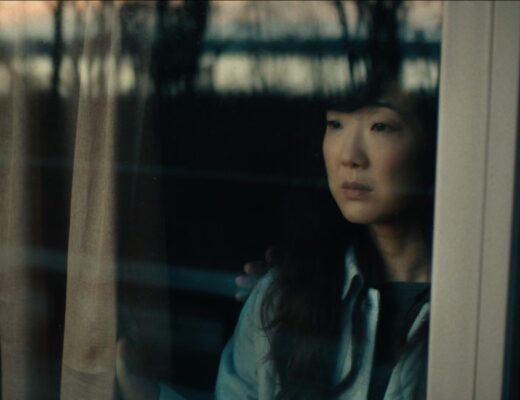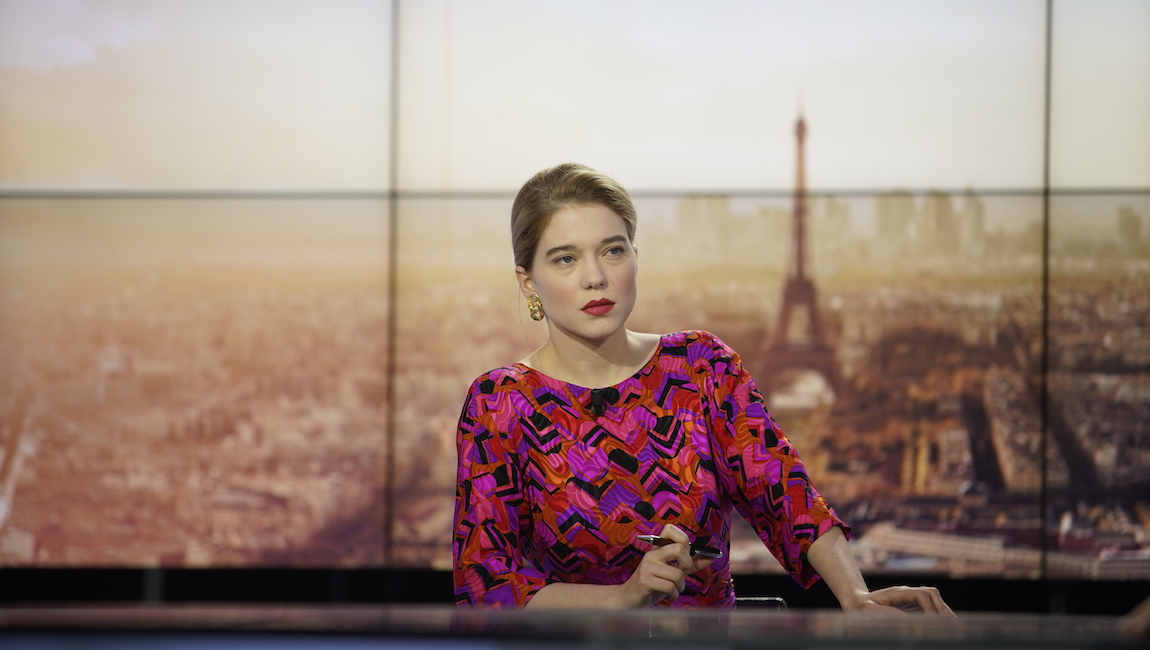Across diverse forms of media, artists have devised various modes of depicting oppression. Watching Clement Virgo’s stirring feature Brother, it’s the smallness of the characters that drives this idea home. The world they here experience is vast, often strangely and uninvitingly so. Environments like the protagonists’ apartment, the school library, avenues leading to a bus stop, and rolling, grassy fields are usually captured in various wide shots. It’s a visually compelling choice on the surface, setting up numerous opportunities to revel in artful framing, which cinematographer Guy Godfree certainly has an eye for. Yet by the same token, it’s also a visually estranging approach. These people exist in cavernous spaces with curious geometries. The exaggerated proportions swallow up our main players, emphasizing the warping power their surroundings have on their psyches and burgeoning self-perceptions. Brother‘s visual style is instantly, uncomfortably immersive; it’s capable of spellbindingly drawing your eye to the screen, while over time inundating you with its force, until you register your unconscious desire to get out.
Brother follows the story of two young Black men in 1990s Toronto. Sons of Caribbean immigrants, Francis (Aaron Pierre) and Michael (Lamar Johnson) each juggle their own insecurities and desires as they approach manhood. The two live with their hardworking mother, Ruth (Marsha Stephanie Blake), who is stuck with the taxing enterprise of raising respectable boys in a neighborhood rife with negative influences. The film’s plotting is loose and its narrative jumps between three separate timelines: briefs glimpses of the boys as young children; Francis and Michael during their high school years; and later, the two divided, with an older Michael tending to his mentally fraying mother while his brother is out of the picture.
Much of Brother‘s success comes from its visual design and the atmosphere it cultivates. There’s a precision to the work, one that in lesser films might leave it seeming sharp around the edges or impenetrably firm, but which here manages to feel intentionally crafted. The walls inside the family’s apartment are primarily shades of blue and orange, their hues and saturation slightly adjusted according to the mood felt at different periods in the timelines — a strong presence of shadow early on; bright and optimistic during the high school years; often devoid of any vibrancy in the later years. Slow zooms, in and out, are another of Brother‘s fixtures, engaging or distancing the action with a barely perceptible smoothness; the characters’ movements likewise possess evince this slowed, almost slurred pace that produces a narcotic, dream-like effect, as if depicting life as it hazily exists in memory. The film’s sound design, however, adds an edge to its complicated tenderness, as a mélange of unsettling buzzes, hums, booms, and drones infuse the proceedings with a palpable air of darkness. Stalking the protagonists like some sort of surveilling beast, this effect is intermittently executed, but its threat lingers ever-present across the film’s runtime. It’s an aesthetic choice that sees an internal dissonance externalized, an ominous reminder of danger to come, how one wrong move could upend everything.
Attempting to advise his younger brother, Francis tells Michael at one point in the film, “There’s always a way to show the world you’re not a nobody, a nigga.” The “nigga,” the lowliest manifestation of Black life he believes possible, is more than just “the Other,” but a forgotten, abject creature whose skin is the very prison that restricts his life’s possibilities. Both Francis and Michael, in their own ways, find it difficult to fully bloom into their unique selves. Francis, adept at navigating his environment, grows increasingly weary from having to wear his masculinity as a suit of armor. Michael, skinny, reserved and bookish, is immediately a target of bullying from some of his hypermasculine peers. Without venturing too explicitly into discussions of cultural authenticity, Brother repeatedly confronts them and us with the idea that self-identification as a Black person is fraught when there are so many already assuming to know who you essentially are, often for worse than better. The strength of both Pierre and Johnson’s performances lies in the internal emotional battles they depict — how their characters react or fail to react to what’s around them, how much pain and self-doubt they store behind their stoic facades.
A drawback of Brother‘s loose plotting is a lack of coherence in both of the brothers’ arcs — things happen to them much more often than they manifest anything in motion. The film’s core story, then, can feel like a waiting game at times, the viewer wondering what might occur next and whether it will have any allegorical significance. Brother’s non-linear editing works to mask this somewhat, often jumping between timelines or each brother’s specific POV, providing instances of narrative mirroring that communicate the film’s crucial ideas to the audience, even as the characters are left standing still. Despair marks Francis’ journey in particular, and come the climax, when he’s at his lowest, it’s Pierre’s heartbreaking performance that makes the scene work in spite of his character not feeling properly substantiated. A less charitable reading could leave one feeling the central characters are more ethnographic renderings important for the film’s sociopolitical thesis than fully fleshed-out human beings. But the combined strength of the lead duo’s dutiful acting and Virgo’s effective visual style is enough to short-circuit such a reading. Brother ultimately succeeds because its assured vision carries it to poignant places, flaws and all.
DIRECTOR: Clement Virgo; CAST: Lamar Johnson, Aaron Pierre, Marsha Stephanie Blake; DISTRIBUTOR: Vertical; IN THEATERS & STREAMING: August 4; RUNTIME: 1 hr. 59 min.







